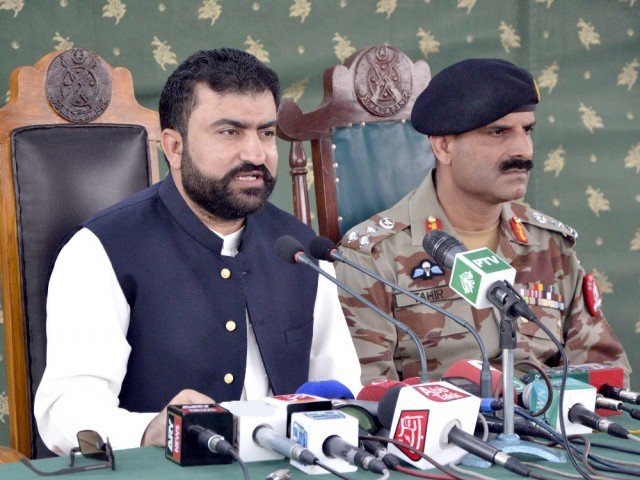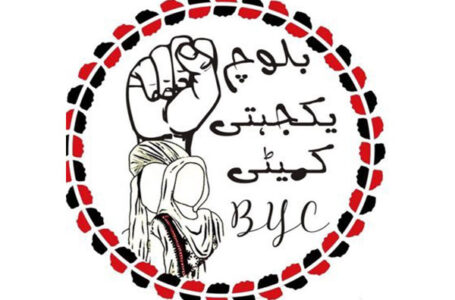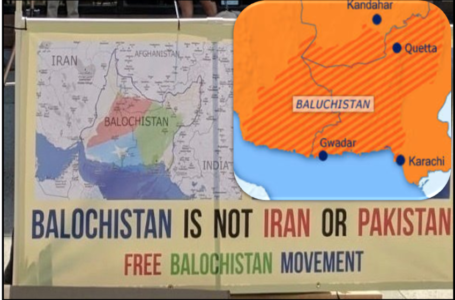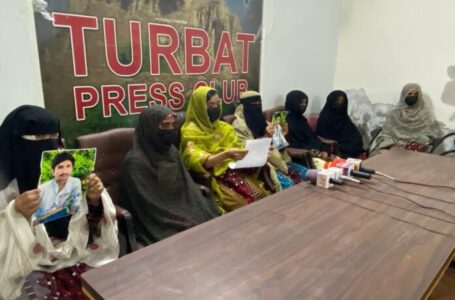Balochistan: Pakistani Forces’ Ration Supply Confiscated in Kulbar
Once a Liar, Always a Liar: The Case of Sarfaraz Bugti and the BYC Leader’s Rebuttal

In the world of politics, the line between truth and fiction often blurs, but when it comes to false accusations, the damage can be irreparable. This is especially true when those in power use their platform to spread misleading claims with no basis in reality. Recently, Balochistan Chief Minister Sarfaraz Bugti found himself at the centre of a controversy following allegations he made about Sammi Deen Baloch, once of the leaders of the Baloch Yakjehti Committee (BYC).
In a televised interview, Bugti accused Baloch of being anti-state and, more specifically, claimed she had set fire to the Pakistani flag—a serious allegation that could tarnish anyone’s reputation. He even went as far as to say he had video evidence of the supposed act and promised to send it via WhatsApp to the journalist conducting the interview.
However, the response from Sammi Deen Baloch was swift, strong, and unyielding. In a statement that echoed the frustrations of many who feel unfairly targeted by such baseless accusations, Baloch described Bugti’s claims as nothing more than “blatant lies.” She noted that her movement, which has consistently advocated for peaceful resolutions and the rights of Baloch people, had long been a target of false media narratives designed to discredit them.
Baloch’s direct challenge to Bugti was unequivocal: “I challenge Sarfaraz Bugti to publicly release the video he claims exists. Tell the nation when, where, and on what occasion I burned the Pakistani flag. If he can prove this allegation, I will surrender myself to the law. But if he cannot—which I know he won’t—then he must resign immediately.”
In her statement, Baloch made it clear that she was not merely responding to the chief minister’s words for the sake of self-defense. She demanded accountability, calling on the judiciary to take legal action against Bugti for spreading false, defamatory, and misleading statements. In a society where many political figures face little to no repercussions for slanderous claims, Baloch’s call for justice struck a chord with those who believe in the rule of law.
The fact that this is not the first time Bugti has made unsubstantiated claims on national television only adds weight to Baloch’s accusations. As the former Home Minister of Balochistan, Bugti made similar remarks that were never backed by evidence. Now, as the sitting Chief Minister, it appears he has not learned from past mistakes. These recurrent falsehoods are not mere slip-ups—they are part of a pattern of behaviour that aims to mislead the public, tarnish reputations, and deflect attention from more pressing issues.
However, in a surprising twist, Sarfaraz Bugti later conceded that he had been shown a video of a girl setting fire to the Pakistani flag and was told that the girl in the video was Sammi Deen Baloch. He publicly apologised to Baloch for his misleading statement on national television. Bugti acknowledged that he had been misinformed but insisted that his original intention was to highlight the alleged anti-state activities of the BYC. He claimed that he was trying to make a point about the organisation, but his approach had clearly backfired.
Despite the apology, Bugti’s record of dishonesty continues to raise serious concerns. His track record of making unfounded claims is not just a matter of poor judgment; it has become a hallmark of his public persona. The fact that he admitted to being misled by the video without verifying the facts only reinforces the notion that his actions were reckless and irresponsible.
In any civilised, democratic country, the behaviour displayed by Sarfaraz Bugti would be grounds for immediate political consequences. If such a situation had occurred in a more transparent and accountable political system, Bugti would have likely been forced to resign by his own accord, or he would have been removed from office by the public or political establishment. The lack of accountability in Balochistan under occupation of Pakistan raises troubling questions about the state of governance in the region and the culture of impunity that allows political leaders to make baseless claims without facing consequences.
Baloch’s challenge to Bugti remains valid: “If people can be abducted or arrested based on false allegations, then the law should apply equally to everyone.” Yet, it is clear that the law does not always work equally for those in power. Bugti’s repeated lies demonstrate that for some, truth is a mere commodity to be manipulated for political gain.
The real question now is whether the people of Balochistan and the wider public will continue to tolerate such behaviour from their elected leaders, or if, as Sammi Deen Baloch has demanded, the truth will finally prevail. Bugti’s response to the challenge, or lack thereof, will be a telling moment in the political landscape of Balochistan—and perhaps an indication of whether the cycle of lies can ever be broken.
As the situation continues to unfold, one thing remains clear: Sarfaraz Bugti’s credibility has been permanently tarnished. His apology may have offered a small measure of damage control, but it cannot undo the harm caused by his repeated dishonesty. Once a liar, always a liar. And in this case, the lies may have finally caught up with him.










